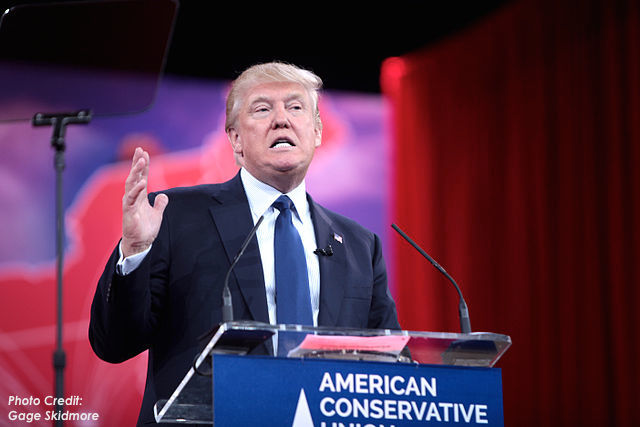The following op-ed originally appeared in The Globalist.

U.S. presidential candidate Donald Trump has publicly described his business empire’s four bankruptcies in the following terms: “I have used the laws of this country…the [bankruptcy] chapter laws, to do a great job for my company, for myself, for my employees, for my family.”
Because his businesses entered “Chapter 11” bankruptcies – named for the provision of the U.S. legal code that allows businesses to restructure without closing shop and liquidating – he sees the four episodes in utilitarian and strategic terms, not as failures.
While I am not defending Donald Trump’s view of his practices, one key question needs to be answered: Are Trump’s business bankruptcies really worse than other corporate legal manipulations and practices?
Gaming the system
True, Chapter 11 bankruptcy is uncommon by comparison to other maneuvers through American business and tax law. Certainly bankruptcy still carries a bit of a scarlet letter stigma even if the risk is somewhat controlled, and so it is generally avoided.
But is manipulating corporate bankruptcy law really worse than those other tactics? Major U.S. companies use and abuse legal provisions constantly to evade and avoid taxes to the government.
Trump, by contrast, used the law to avoid creditors at major investment banks and funds (and most of them came out the other side of his restructurings with lucrative deals).
Some U.S. companies do complicated maneuvers like “offshore reincorporation” and other tax-avoidance mergers – a loophole Trump has actually criticized on the campaign trail.
The entertainment mogul used Chapter 11 for cashflow management purposes (and to slash hundreds of millions of dollars in company debts). If companies use the U.S. legal code to boost their profits and cashflow via tax avoidance, how is that less dubious than using Chapter 11 bankruptcy?
Donald Trump made business deals on the (correct) assumption that he could fall back on restructuring laws. Other firms make deals based on assumptions that they can fall back on tax loopholes.
Firm defenders of American business law might dismiss the existence of business law loopholes as irrelevant either way and might prefer to judge his record solely on what these bankruptcies says about his ability to run businesses responsibly.
Poor financial management
Well, what about comparing it to popular and trendy legal maneuvers that are questionable long-term business practices? Many U.S. companies have been borrowing heavily to reward their shareholders, instead of using it to invest in expansion.
This practice effectively means shareholders are profiting against the company’s future financial health, rather than from current (or future) returns on its previous (or current) investments. That means literally raiding the companies’ future earnings to generate payout cash now.
Such a company will eventually have to pay back the borrowed money with interest. In the meantime, it will not have gained anything from that borrowing because it was used to rain money down on shareholders instead of actually growing the company’s operations.
The vast majority of American stock is held by a very small number of people with a lot of money to throw around. This means companies are putting themselves deeper into a long-term hole, even as wealthy shareholders rake in money in the short-term.
Trump may be incorrect when he asserts that “virtually every person” at the top of the business world has made use of bankruptcy protections. But his claim might simply be a bit ahead of its time – given the short-termist (mis)management of so many major U.S. companies today.
Down the line, by borrowing to benefit shareholders, a lot of American companies could have very high debt burdens. They would also be very underdeveloped compared to foreign competitors who invested in keeping up with the times and growing their long-term potential earnings.
That will make them uncompetitive, as well as vulnerable to bankruptcy or Japanese-style zombification.
And even all of this is to say nothing of the Wall Street debacles in 2008 that would have forced massive bankruptcies were it not for backstop loans by the Federal government.
Trump, business law exploitation pioneer
Sure, Donald Trump flew closer to the sun (and did so sooner) than these other future Icaruses, but the effect may eventually be the same. Singling him out would be mistaken, if not hypocritical.
Once again, as with his xenophobic appeals, one finds that Trump is merely reflecting back a refined and purified vision of what America has become in its re-expanding dark corners – in this case corporate America and the wealthiest 1%.
Those corners of our society exercise financial and political power in a dangerous direction. But he did not make it that way, and he is not the exception.
There is a separate set of rules in the United States accessible only to the very wealthy and their mega-corporations that allows them to evade and avoid debts and taxes that are seemingly inescapable for average Americans.
That lack of fairness in the rules is undermining voter confidence in the political and economic governance system. Ironically (and worryingly), that mix of frustration and apathetic helplessness has created the opening for someone like Trump to step into the breach.






